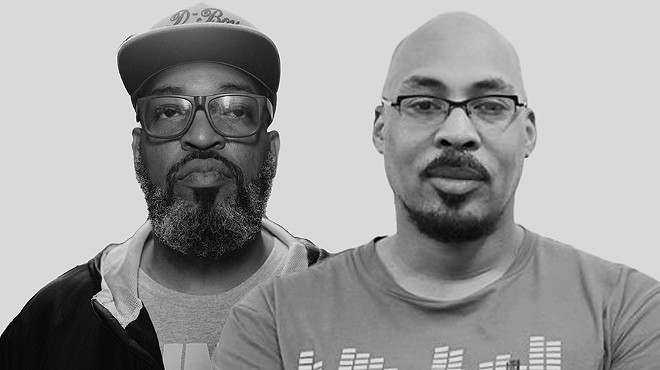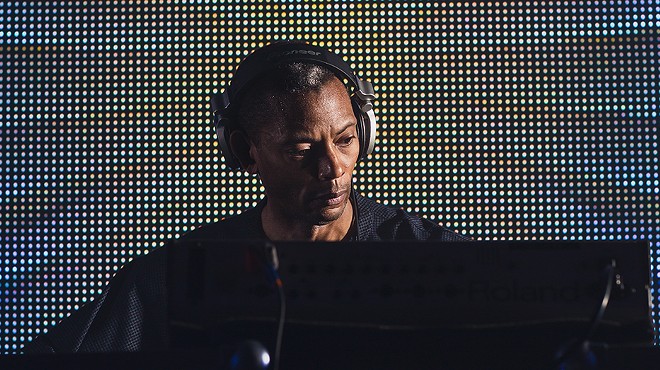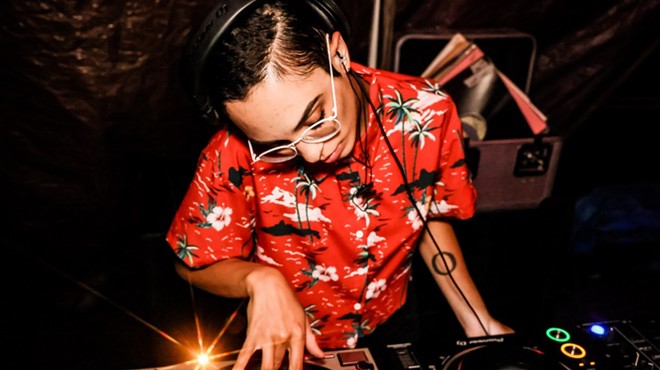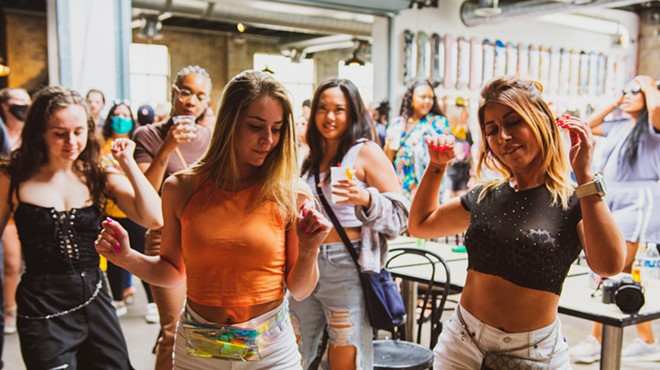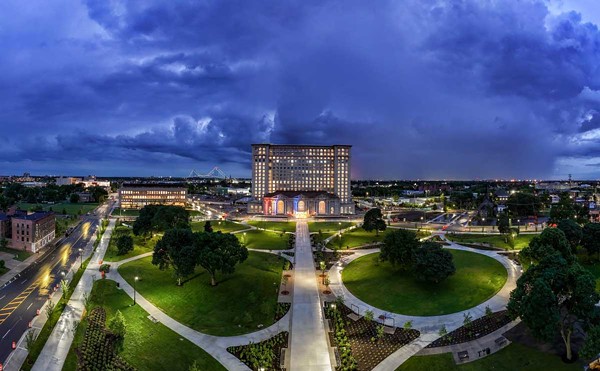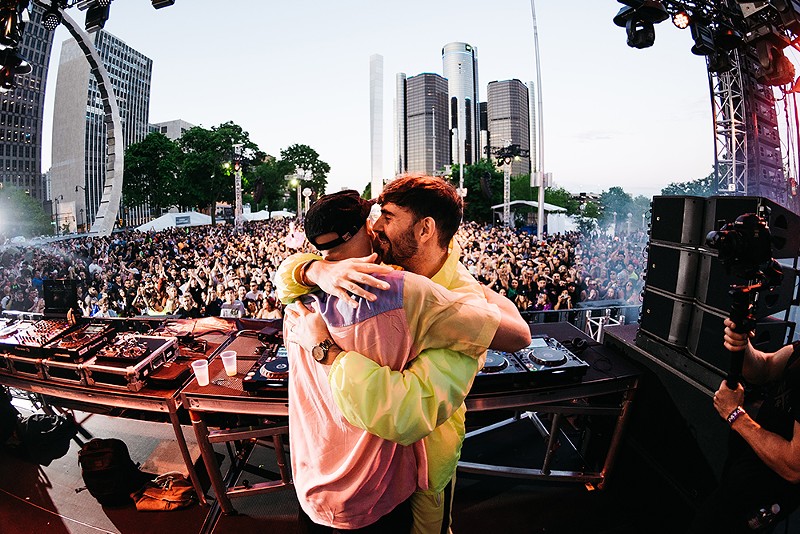
This year’s Movement Festival was the most difficult to produce since Paxahau began organizing operations for Detroit’s Memorial Day electronic music festival in 2006. That very first Movement fest saw its own share of challenges, but Paxahau director of operations Sam Fotias says the 2022 iteration was just as tough, if not tougher, to produce.
After two years of no festival due to COVID-19, Movement is finally back — but it wasn’t easy. The Paxahau team planned, re-planned, canceled plans, and made brand new plans, often on a whim, nearly every day since the pandemic first swept the United States in March of 2020.
“It’s been a crash course in learning about contingencies,” Fotias admits. “Even the contingencies to our contingencies don’t exist anymore.”
Two years of living in the COVID-19 pandemic changed the entertainment industry, disrupting supply lines, causing skyrocketing prices, and making it difficult to get things that in previous years would have never been an issue, like trucks to transport equipment. Plus, ever-evolving health restrictions, recommendations, and safety protocols make planning a festival that sees upwards of 100,000 attendees or more a delicate process.
When news of COVID-19 first began to surface in late 2019, many, including Detroit-based event producers Paxahau, were doubtful the deadly virus could ever reach Michigan. “We just kept chugging along,” Fotias remembers, who says planning the festival is a year-round ordeal. “We had this thought that it’s not going to come here, that it’ll be like H1N1 or SARS.”
Yet as COVID-19 spread — and claimed more and more lives — the entertainment industry began to take notice. It started with South by Southwest and Ultra Music Festival being canceled, then tours worldwide started to pull shows from venues. “That was the first red flag,” Fotias explains. “Everybody was talking about it internally here at the office.”
Unsure what could happen next, Paxahau continued with planning the 2020 festival. A few weeks before the event, however, it was obvious that Movement couldn’t take place. It would be the first time the festival, which originated as the Detroit Electronic Music Festival and went through several iterations before transforming into Movement, wouldn’t fill Hart Plaza with crowds and techno music since 2000, a whole 20 years.
As their first year back in action after two years off, Movement isn’t holding back the punches. They’re ready to return with a bang.
tweet this
Instead, the festival was postponed to fall of 2020. “It’ll be over by then, it’ll roll through,” Fotias recalls thinking of the pandemic, remembering the idea of “flattening the curve.”
Movement was just one of many events to take a hit during the COVID-19 shutdowns. “It happened at such a crucial time for the entertainment industry,” Fotias continues. “Spring and summer is a huge time not only for festivals, but for stadium tours, outdoor tours, and even smaller venues. A lot of people don’t realize that large contractors, the contractors we work with for the festival, gear up for the summer stuff. They invest millions of dollars in lighting, sound and video to meet contractual demands.”
And 2020 was supposed to be one of the most lucrative entertainment summers in history, Fotias explains. Instead, it became the exact opposite. “We were calling companies that we’ve been working with for over a decade, having conversations about pushing the festival, while they were on the hook for tens of millions of dollars of investments that they had made in anticipation of fulfilling these contracts that were just being wiped out,” he says.
As hopes for a fall festival were also wiped out, with the pandemic continuing much longer than anyone anticipated, Fotias recalls the situation at the time as “grim.” “It was pretty intense,” he says. “There was no playbook for this. No matter how prepared you were, there was nothing that could prepare you for something like COVID-19.”
Instead, Paxahau set their eyes on planning the 2021 festival. In fall of 2020, they had what Fotias explains was a “sad reunion” at Hart Plaza with the staff, who were otherwise working from home and practicing social distancing. “We just throttled up and put our thinking caps on,” he says. “We saw that the industry was turning towards streaming.”
Inspired by what they saw, Paxahau created a virtual live broadcast of the annual Detroit Jazz Festival in September 2020, which they also produce. They formed a partnership with live streaming service Twitch and set up a studio in their Paxahau warehouse, where DJs could perform live for music fans to watch at home. “That helped us keep working,” Fotias says. “It helped us put money into the local entertainment industry by hiring audio and light [companies].”
Yet as 2021 rolled around, it became obvious that another full-fledged Movement festival just wasn’t possible given the ongoing public health crisis, and Paxahau decided to pivot once again. “The vaccines were not on track to meet the goals that the governor had set forth to lift restrictions,” Fotias recalls. “That’s when we decided that we’ll do a ‘Micro Movement.’”
During what would have been the 2021 Movement weekend, nearly 50 Detroit-based electronic music and hip-hop artists played smaller shows at select venues throughout the city. The shows were outdoors and had limited capacity. “We knew people wanted to get together,” Fotias says, “and I think people had a great time.”
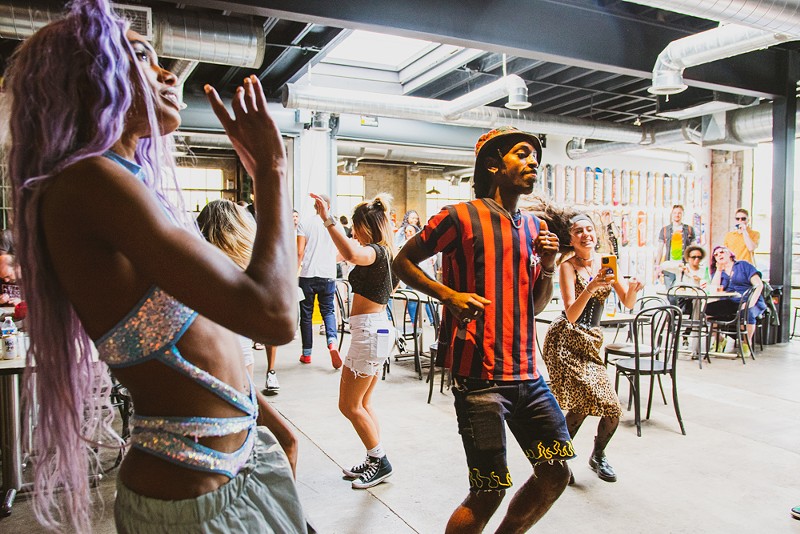
With major health restrictions lifted in Michigan in June 2021, Paxahau began to ramp up their live events. Though Jazz Fest once again saw a virtual model in order to err on the side of caution, club shows were on the rise — and so was planning for a 2022 Movement.
Thanks to grants that helped support the entertainment industry, which took massive revenue losses during the pandemic, creating the caliber of Movement that fans were used to was a realistic possibility. “We started to send [contract] offers out for 2022 and get things lined up,” Fotias says. Yet the sudden rise of the Delta and later Omicron variants of the virus that causes COVID-19 once again threatened to put a wrench in the festival’s plans.
“Everybody started dropping out and getting sick,” Fotias recalls. “It impacted us to the point where we held off on going full steam until after the new year. But that’s when the pain really started.”
Out of touch with many contractors, most of whom hadn’t worked in two years, Fotias likens it to “walking through a hellscape.” “Contractors didn’t exist anymore,” he says. “There were labor shortages across all sectors, inventory shortages, supply chain issues from microchips, to plastics, to metals. Lighting, audio, video, control consoles — everything had a shortage of inventory. There was no labor to move things around.”
Trucking, a crucial service necessary for loading and unloading festival gear and equipment, had gone up almost 300% in price, Fotias says. “Just the stadium structures use 17-20 semi-trucks,” he says. “That has been the most incredible challenge, just navigating all of these things every day.”
Movement festival planning, Fotias continues, comes with a new set of surprises each day. “The same high-low and heavy equipment provider that I’ve been working with for 12 years can’t provide the 36 machines I need,” he says as an example. “There is a national shortage of forklifts, scissor lifts, and heavy equipment, because manufacturers can’t get raw materials to build new machines. It’s been a true uphill battle.”
Still, the show must go on. Despite the challenges, Movement 2022 is moving forward as planned, with the Paxahau team ready to pivot on a moment’s notice. They keep a close eye on COVID-19 numbers as they continue to plan up until the last minute, when the festival’s gates open to thousands of fans. “We see the uptick that's going on,” Fotias says of COVID-19 cases, “and it’s just something we’ll have to integrate within our public safety plan.”
As their first year back in action after two years off, Movement isn’t holding back the punches. They’re ready to return with a bang. This year’s festival will see the addition of a sixth stage, the Detroit Stage presented by JARS, the festival’s first cannabis sponsor. “It was absolutely imperative for us to have a stage for local talent,” Fotias says. “So much amazing talent has bubbled up over the last few years, and we wanted to provide a place for them to showcase their talent for the thousands of people who come [to Movement] from all over the world.”
The Underground Stage, typically home to heavier techno, is also getting a new look. With its limited number of exits, Fotias explains that moving the stage to a better location was necessary for public safety. Fortunately, it’s not moving far. “A lot of people don’t know it exists, but there’s actually a subterranean [food] court area in the plaza that hasn’t been open for years,” he says. With double the square footage of the original underground stage, the subterranean court will be the Underground Stage’s new home moving forward, Fotias says.
“I think it’s even more reminiscent of old Detroit warehouse parties,” Fotias explains. “It’s the most representative of where our [techno] culture comes from.”
After a long two-year hiatus, many, including Paxahau, look forward to Movement’s awaited return. “The anticipation is that it will be positive,” Fotias says. “It’s going to be a good year.”
Movement is from Saturday, May 28-Monday, 30 at Detroit’s Hart Plaza. More information is available at movementfestival.com.
Stay connected with Detroit Metro Times. Subscribe to our newsletters, and follow us on Google News, Apple News, Twitter, Facebook, Instagram, Reddit, or TikTok.

